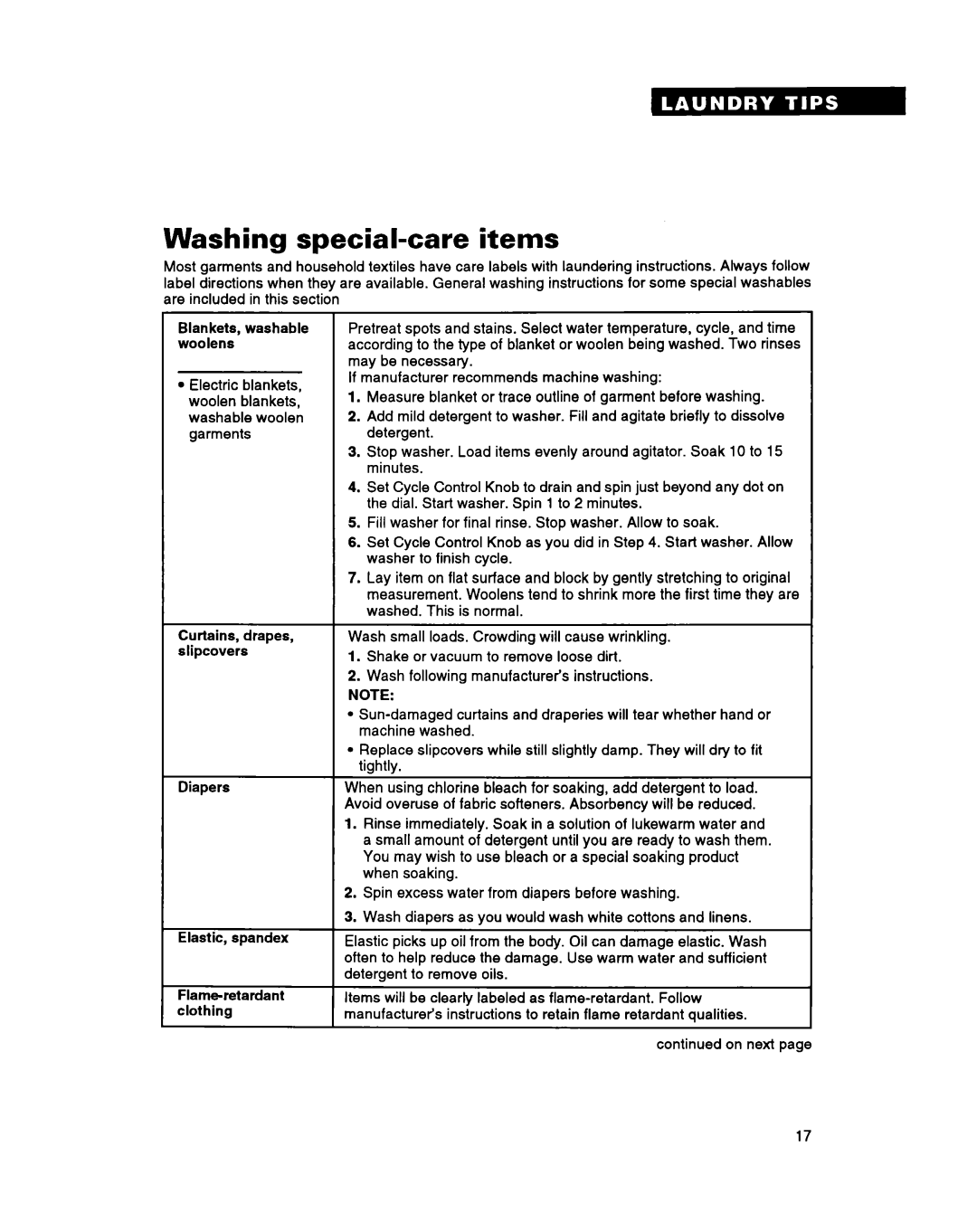
Washing special-care items
Most garments and household textiles have care labels with laundering instructions. Always follow label directions when they are available. General washing instructions for some special washables are included in this section
Blankets, washable woolens
l Electric blankets, woolen blankets, washable woolen garments
Curtains, drapes, slipcovers
Diapers
Elastic, spandex
Pretreat spots and stains. Select water temperature, cycle, and time according to the type of blanket or woolen being washed. Two rinses may be necessary.
If manufacturer recommends machine washing:
1.Measure blanket or trace outline of garment before washing.
2.Add mild detergent to washer. Fill and agitate briefly to dissolve detergent.
3.Stop washer. Load items evenly around agitator. Soak 10 to 15 minutes.
4.Set Cycle Control Knob to drain and spin just beyond any dot on the dial.
5.Fill washer for final rinse. Stop washer. Allow to soak.
6.Set Cycle Control Knob as you did in Step 4. Start washer. Allow washer to finish cycle.
7.Lay item on flat surface and block by gently stretching to original measurement. Woolens tend to shrink more the first time they are washed. This is normal.
Wash small loads. Crowding will cause wrinkling.
1.Shake or vacuum to remove loose dirt.
2.Wash following manufacturer’s instructions.
NOTE:
l
lReplace slipcovers while still slightly damp. They will dry to fit tightly.
When using chlorine bleach for soaking, add detergent to load. Avoid overuse of fabric softeners. Absorbency will be reduced.
1.Rinse immediately. Soak in a solution of lukewarm water and a small amount of detergent until you are ready to wash them. You may wish to use bleach or a special soaking product when soaking.
2.Spin excess water from diapers before washing.
3.Wash diapers as you would wash white cottons and linens.
Elastic picks up oil from the body. Oil can damage elastic. Wash often to help reduce the damage. Use warm water and sufficient detergent to remove oils.
Flameretardant | Items will be clearly labeled | as |
clothing | manufacturer’s instructions | to retain flame retardant qualities. |
|
| continued on next page |
17
